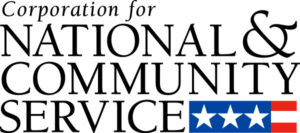Nonprofits, community groups and other mission-based programs in the USA need to be aware that legislation and politics are affecting your staff (employees and volunteers) and your clients/customers. Such is affecting their families and their day-to-day life, their health care, the life-altering choices they can make, their participation in society, and on and on. And that means it’s also going to affect staff job performance with you and potentially affect the impact you can have with clients/customers.
Regardless of your own personal politics and regardless of your organization’s mission, you need to be aware of how legislation and politics are affecting your staff and to think about how you are, or are not, going to support staff as this is happening.
You have employee, volunteers and clients who may become pregnant and need to seek abortion services. Or maybe denied access to abortion services despite an ectopic pregnancy, an incomplete miscarriage, placental problems and premature rupture of membranes. How are you going to support them as they undergo these experiences?
You have employees, volunteers and clients who have same-sex marriages, something the US Supreme Court may overturn. If that happens, and their marriages are declared invalid, will you continue to give spousal benefits for staff, such as maternity leave or health care coverage? If that happens but those marriages remain valid, but no more can happen, will you give spousal benefits, such as maternity leave or health care coverage, to those staff members now forbidden by law from marrying? Will you still send track the names of those partners in your database if you do so already?
For an election, some states are putting just one ballot drop box to serve an entire county, or prohibiting most people from applying for absentee ballots. Are you going to give your employees and volunteers paid time off to vote on election day? Are you going to make sure staff and clients know about non-partisan voter education programs, like guides from the League of Women Voters, and debates?
Some staff have family members who are not legally in the country and are living in day-to-day danger of being deported, and if such happens, it could not only mean the separation of a loved one, but sudden changes regarding income, in options regarding child care, and more. What will you do to support such staff?
Consequences of not thinking about this or addressing it:
- You will lose employees and volunteers.
- The productivity and performance of employees and volunteers could be affected, which affects your service delivery.
- Inaction may go against your stated organizational values.
Note I’m not asking you to take a political stance. The IRS wording on the Restriction of Political Campaign Intervention by nonprofits is clear:
Under the Internal Revenue Code, all section 501(c)(3) organizations are absolutely prohibited from directly or indirectly participating in, or intervening in, any political campaign on behalf of (or in opposition to) any candidate for elective public office. Contributions to political campaign funds or public statements of position (verbal or written) made on behalf of the organization in favor of or in opposition to any candidate for public office clearly violate the prohibition against political campaign activity. Violating this prohibition may result in denial or revocation of tax-exempt status and the imposition of certain excise taxes.
Certain activities or expenditures may not be prohibited depending on the facts and circumstances. For example, certain voter education activities (including presenting public forums and publishing voter education guides) conducted in a non-partisan manner do not constitute prohibited political campaign activity. In addition, other activities intended to encourage people to participate in the electoral process, such as voter registration and get-out-the-vote drives, would not be prohibited political campaign activity if conducted in a non-partisan manner.
On the other hand, voter education or registration activities with evidence of bias that (a) would favor one candidate over another; (b) oppose a candidate in some manner; or (c) have the effect of favoring a candidate or group of candidates, will constitute prohibited participation or intervention.
But if you think politics isn’t personal and can’t affect a nonprofit, whether it’s a performing arts center or a literacy program or an animal rescue group, think again.
And you should consider mentioning to funders how these state and federal actions are affecting your staff, your clients and your work in general. They should know.

If you have benefited from this blog, my other blogs, or other parts of my web site and would like to support the time that went into researching information, developing material, preparing articles, updating pages, etc. (I receive no funding for this work), here is how you can help.






